Normandy Last Name Origin, History, and Meaning
Where did the surname Normandy come from? What does the surname Normandy mean? Discover the history and meaning of the last name Normandy and family migration on YourRoots Map.
Surname Normandy Origin: What does the last name Normandy mean?
The surname Normandy has its origins in France, specifically in the geographical and cultural region of Normandy. It dates back to the settlement of the territory by Vikings in the 9th century, confirmed by a treaty in the 10th century between King Charles III of France and the Viking leader Rollo. Normandy was historically linked to England after the Norman conquest in 1066, with the same person reigning as both Duke of Normandy and King of England. The name "Normandy" reflects Rollo's Viking origins.
According to YourRoots data, the Normandy surname first appeared in records from France around the early 10th century. It remained closely associated with France from the 10th to the 12th centuries and spread globally over the centuries. By the 20th century, the surname was prominent in France and the United States, with records also found in countries like England. The Normandy surname reflects a rich heritage tied to the history and culture of the region, continuing to be prevalent in various countries worldwide.
Normandy Last Name History: Where did the last name Normandy come from?
Origin of Normandy Surname: Where does the last name Normandy originate from?
According to YourRoots data, the surname Normandy first appeared in records from France around the early 10th century. Please note that this reflects only YourRoots data for the exact Normandy spelling and does not include other record sources or surname variations.
History of the Last Name Normandy: What does the Normandy surname history look like in the early days?
The Normandy surname remained closely associated with France from the 10th to the 12th centuries. YourRoots data also shows Normandy family records in countries like England, indicating global spread over the centuries.
Global Spread: Where can we find the Normandy surname today?
By the 20th century, the volume of records with the Normandy surname grew significantly in France and the United States. The Normandy surname remains prominent in France. It appears in many countries, including England, and the United States.
Explore Normandy last name heritage and Normandy surname origin based on YourRoots Map data
 VIEW THE ORIGIN OF SURNAME NORMANDY
VIEW THE ORIGIN OF SURNAME NORMANDYFamous People With Normandy Surame?
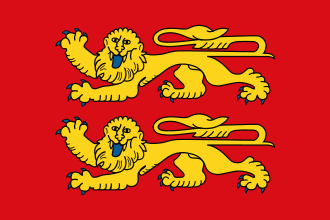
Duchy of Normandy
Duchy of Normandy was a historical territory in France that played a significant role in European history. Established in 911 through a treaty between King Charles III of West Francia and Viking leader Rollo, the duchy was named after its inhabitants, the Normans. It became a powerful entity with dukes ruling over both Normandy and England following the Norman Conquest in 1066. The duchy's influence waned over time, eventually being absorbed into the French Royal Domain in 1204. Despite its formal end, the title "Duke of Normandy" is still informally used in the Channel Islands today, symbolizing the enduring legacy of this once-mighty realm.
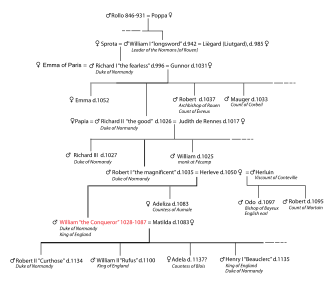
Duke of Normandy
William I, Duke of Normandy (c. 1028 – September 9, 1087), also known as William the Conqueror, was the first Norman King of England, reigning from 1066 until his death. He successfully invaded England in 1066, defeating King Harold II at the Battle of Hastings. William's reign marked the beginning of Norman rule in England and the integration of Norman culture into English society. His legacy is still felt today, as he established a strong centralized monarchy and laid the foundation for the English legal system. William remains a prominent figure in English history and is often depicted in popular culture and historical works.
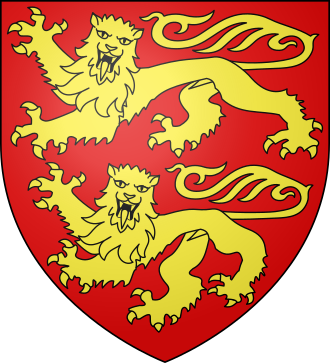
History of Normandy
History of Normandy (Birth date - Death date) was a province in the North-West of France known for its rich history and cultural significance. From its Celtic and Belgic tribes to Roman conquest, Viking raids, and eventual integration into the Kingdom of France, Normandy has played a pivotal role in European history. Notable for the Duchy of Normandy, the Hundred Years War, and being the starting point of the Allied invasion on D-Day in 1944, Normandy's legacy continues to fascinate historians and enthusiasts alike.
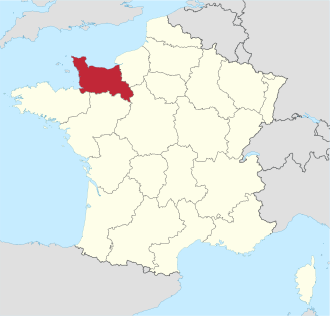
Lower Normandy
Lower Normandy (no specific birth and death date) was a former administrative region of France that merged with Upper Normandy to become Normandy in 2016. Known for its rich history dating back to the Roman era, the region was conquered by the Franks in the 5th century and later added to the Duchy of Normandy in the 10th century. From the Norman conquests to the Hundred Years' War, Lower Normandy played a significant role in European history. Today, the region is recognized for its agricultural economy, unique Norman language, and contributions to literature and the arts, with famous figures like Guy de Maupassant and Erik Satie hailing from this vibrant cultural hub.
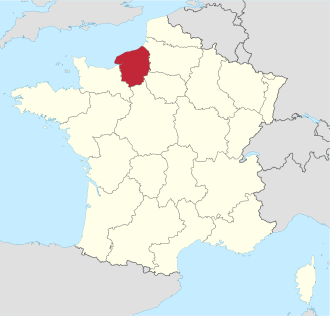
Upper Normandy
Upper Normandy (Haute-Normandie) was a former administrative region of France, known for its historic capital of Rouen and the port city of Le Havre. The region was merged with Lower Normandy in 2016 to form the current region of Normandy. Famous for its agriculture, industry, and tourism, Upper Normandy was home to iconic landmarks like the Rouen Cathedral and vibrant urban centers. Explore the rich history and cultural heritage of this picturesque region in France.
All images displayed on this page are sourced from Wikipedia or Wikimedia Commons.We use these images under their respective Creative Commons or public domain licenses. Wherever applicable, author attributions and license information are provided. If you believe an image is used incorrectly or outside its license terms, please contact us so that we can review and correct the issue.




.png)